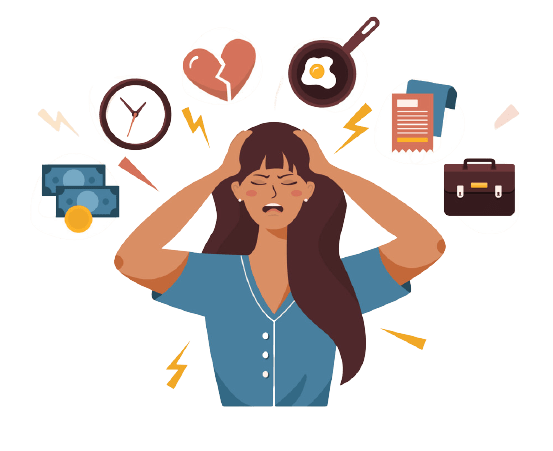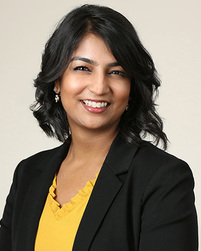Online Eating Disorder Therapy | Best Therapist for Eating Disorder help
- Set up a free & confidential chat on your Eating Disorder issues
- Unlimited help through Eating Disorder self-care app
- Live Video or Chat sessions with top Eating disorder therapists
Begin Therapy
Consult online with best Therapist
Get the best help for Eating Disorder
TherapyMantra is here to help you on your path to recovery from an Eating disorder. We match you with the best Eating disorder therapists available 24/7 via video call or messages.
Match with Eating Disorder Therapists
We assign the best counselors experienced in Eating Disorder issues based on your needs.
Affordable and Effective
Our online sessions are 90% less expensive than in-person therapy, available 24/7.
Self-Care for Eating Disorders
We offer ongoing Eating disorder support through self-care tools, help videos, chat groups, meditations, breathing exercises, and other resources.

Wondering if it’s just a phase or something more? Take our Free online Eating Disorder test to find out?
How it works?
You are matched with an Eating disorder counselor based on your needs and preferences. You get a secure “therapy room” where you can communicate with your counselor via chat or phone. You can write or talk about Eating disorders & ask questions to deal with Eating disorders.

Register for Eating Disorder Counseling
Simply complete a 5-minute online form to tell us about your Eating disorder issues

Consult with your Eating Disorder Therapist
We connect you with Eating disorder counselors who are available 24/7 based on your preferences and needs.

Connect to Our App
Apart from Video/chat sessions, our app offers self-care tools, videos, and meditations to help you deal with your eating disorder.
Best Eating Disorder Therapists
Positive conversations, exercises, and meditations are used by TherapyMantra psychologists to help you deal with Eating disorders. Our Eating disorder therapists outperform traditional counseling as you get matched from a pool of 500+ Eating disorder counselors, who offer 24/7 unrestricted private chat.








What Is An Eating Disorder?
An eating disorder is a mental disorder that leads to abnormal eating habits. There are three main types of eating disorders: anorexia nervosa, bulimia nervosa, and binge-eating disorder.
Each type has unique symptoms, but all involve disordered thoughts and behaviors around food and weight. Eating disorders can cause serious physical and emotional problems.
It is a mental illness that causes people to have a distorted view of their body image and food. All three disorders can be very dangerous to the individual’s physical and mental health.
Types Of Eating Disorders
Some common eating disorders are as follows:
- Binge Eating: This occurs when people eat a lot of food in one sitting. They might feel like they do not have any control and that their eating behavior is out of hand.
- Bulimia: This involves taking part in binge eating then purging the body by making themselves vomit or using laxatives, diuretics, diet pills, enemas, or other medications to get rid of the food they have eaten.
- Anorexia: People with this disorder think about their weight and body a lot. They do not want to eat anything because it might make them gain weight. In order to lose weight, people who have anorexia may try exercising too much or trying starvation diets despite being underweight.
- Diabulimia is a type of bulimia that occurs in people with diabetes who do not take their insulin medication or skip it on purpose to lose weight. They may also exercise too much. This can become dangerous because they will have high blood sugar levels and be at risk for low blood sugar.
- Night Eating Syndrome: People with this condition do not have control over their eating behavior during the night, and they eat a lot throughout the day too. They might be tired or stressed at work because of all of this uncontrolled eating which can make them gain weight quickly.
- Restrictive Food Intake Disorder: This is a rare and severe type of eating disorder. People with this condition may not eat enough to stay alive. They might be afraid or embarrassed about food and their bodies, which causes them to avoid consuming anything even though they are hungry.
- Pica: This is when people eat things that are not food. They might swallow non-food items like paper, soap, or metal objects as well as dirt and other substances.
- Rumination: This occurs when people regurgitate their food and either spit it out or rechew it. They might try to hide this behavior from others, but it is still a sign of an eating disorder.
Treatment Options For Eating Disorder
There are various types of eating disorders, and the most effective treatment for each disorder depends on its cause:
- Individual counseling: This is the first treatment for anorexia. A trained therapist can help people with anorexia work through their feelings around food, weight, and shape; set and achieve realistic goals; and offer strategies for continuing treatment.
- Psychotherapy: This is a type of counseling that helps people understand and change the thoughts and feelings that contribute to their eating disorder; it is used to treat anorexia nervosa and bulimia.
- Nutritional counseling: A registered dietitian can help people with an eating disorder learn about healthy eating and nutrition; how to manage weight through eating well and exercising; and how to maintain a healthy lifestyle for the long term.
- Behavior therapy: This treatment helps people with anorexia nervosa, bulimia, and binge-eating disorder learn new coping skills so they can change their behavior and reduce stress.
- Medications: Antidepressant medications, such as selective serotonin reuptake inhibitors, are used to treat bulimia. These drugs can help control bingeing, purging, and related behaviors.
- Exercise therapy: This treatment for anorexia has three steps: restoring physical health; restoring normal eating patterns by using meal plans supervised by a doctor or other health care provider, and helping people develop a healthy relationship with food and their bodies.
- Medical care: People with anorexia or bulimia often need medical care to address their physical health problems, such as dehydration, malnutrition, and heart problems.
- Hospitalization: In some cases, a person with an eating disorder needs to be treated in a hospital. This may apply if the person is severely underweight, has severe malnutrition, or is at risk of dying from an eating disorder.
How Can Therapy Help With Eating Disorders?
Therapy can be an extremely effective way to treat eating disorders. It can help people to understand the underlying causes of their disorder, and it can also teach them how to cope with their thoughts and feelings related to food and weight.
Therapy can also help people to develop a healthy relationship with food. This can involve learning how to eat in a balanced way and developing a healthy attitude towards food and nutrition.
If you are struggling with an eating disorder, you should seek help from a therapist as soon as possible. They will be able to develop a treatment plan aimed at meeting your specific needs. Treating an eating disorder is difficult, but therapy can provide people with the support they need to recover.
Therapy Options For Eating Disorders
There are many different types of therapy options for eating disorders. Some common therapies include:
- Cognitive-behavioral therapy is a type of therapy that helps you to identify and change the thoughts and behaviors that are causing your problems. CBT is often used to treat eating disorders, depression, and anxiety disorders.
- Family-based therapy is a type of therapy that helps you to improve your relationships with your family members. Family-based therapy is often used to treat eating disorders in teenagers and young adults.
- Interpersonal psychotherapy is a type of therapy that helps you to focus on your relationships and change how you communicate with others. Interpersonal psychotherapy is often used to treat depression and eating disorders.
- Dialectical behavior therapy (DBT) is a type of therapy that teaches you coping skills and helps you learn how to control your emotions and behaviors, while also accepting yourself. DBT is often used to treat eating disorders, borderline personality disorder, and alcohol abuse.
How to find An Eating Disorder therapist?
TherapyMantra can help you find an Eating disorder therapist near you. We have over 500+ therapists listed on our therapist directory. You can follow the following steps to find a good Eating disorder therapist:
- First, ask your family doctor or anyone else you are seeing for a referral for an Eating disorder therapist.
- The next thing you’ll want to do is ask your friends and loved ones for referrals.
- The next thing you’ll want to do is look online. There are many websites that help people find therapists in their area who can treat things like eating disorders.
10,000+ Happy & Healed patients

“After years of dealing with eating issues, Therapy Mantra assisted me in releasing a lot of buried emotions. I had previously received eating disorder counseling, which helped, but Therapy Mantra was able to turn me around and make me look forward to a better life.”
Kevin,
1 year on TherapyMantra
FAQs
An eating disorder is a serious mental condition in which food, exercise, and body weight or form become unhealthy obsessions in a person’s life.
Women and girls are far more likely than men and boys to suffer from eating disorders. Teenage girls are more prone to develop an eating disorder, although boys and men can still be affected. In fact, a boy accounts for one out of every four youngsters diagnosed with anorexia nervosa.
Anxiety, despair, and stress are all mental health problems that can have a significant impact on appetite levels. Other medical disorders, such as pregnancy, hypothyroidism, and others, can also result in a loss of appetite.
However, because many persons with eating disorders place a high value on their body shape and weight when judging their own self-worth, negative body image is common. Some, but not all, eating disorders are characterized by an “over-evaluation of shape and weight.”
When you have a poor body image, you compare your size, shape, or look too unrealistic. Holding yourself to a skinny or athletic ideal can lead to negative self-talk, low self-esteem, and disordered eating practices.


